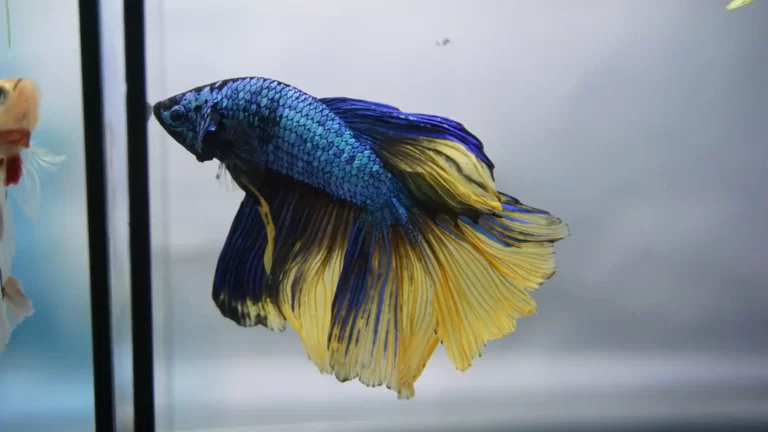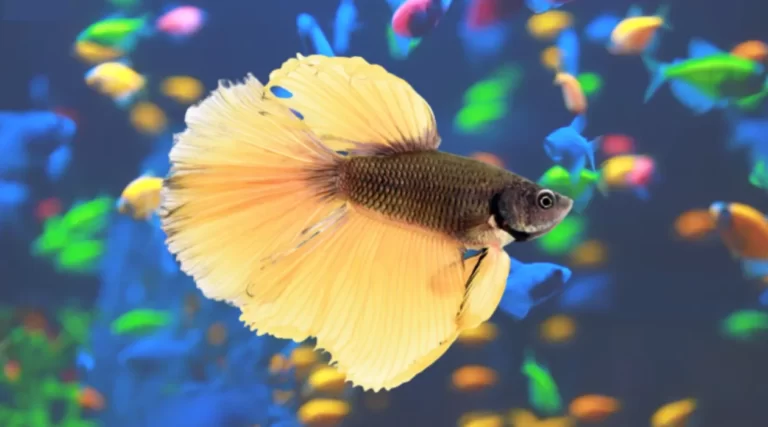Can You Use Distilled Water for Betta Fish? Expert Advice
Betta fish are a popular choice for aquarium enthusiasts due to their vibrant colors and unique personalities. However, providing the right environment for these fish can be challenging, especially when it comes to the type of water used in their tanks. One question that often arises is whether or not distilled water is safe for betta fish.
Key Takeaways
- Distilled water may or may not be a good option for betta fish, depending on certain factors.
- Aquarium enthusiasts should weigh the pros and cons of using distilled water before deciding whether or not to use it for their betta fish.
- Alternatives to distilled water, such as tap water or filtered water, may be better options for betta fish.
Distilled water is water that has been purified through a process that removes all minerals, chemicals, and nutrients. While it may seem like a good option for betta fish, it is important to understand the potential pros and cons of using this type of water. Some experts recommend using distilled water for betta fish, while others caution against it. Understanding the factors involved can help aquarium enthusiasts make an informed decision about the best type of water to use for their fish.
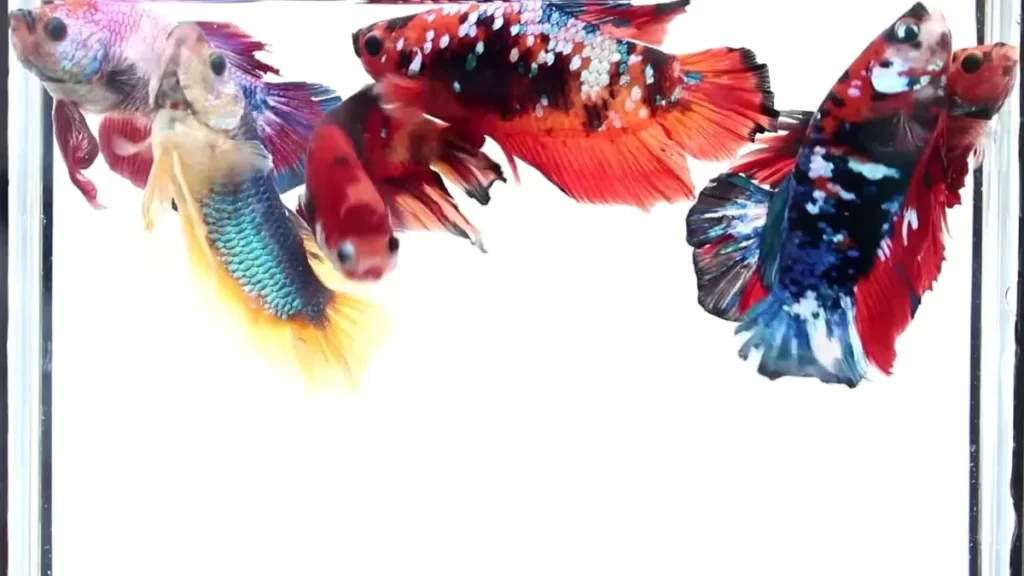
Understanding Betta Fish
Betta Fish Natural Habitat
Betta fish, also known as Siamese fighting fish, are native to the shallow waters of Thailand, Cambodia, and Vietnam. They are known for their vibrant colors and long, flowing fins. In the wild, betta fish live in warm, slow-moving waters such as rice paddies, swamps, and shallow ponds.
Betta Fish Water Requirements
Betta fish require specific water conditions to thrive in captivity. The water should be kept between 78°F to 80°F (25.5°C – 26.7°C) and have a neutral to slightly acidic pH level of 6-7.5. It is also essential to remove chlorine and chloramines from the water before adding it to the tank.
While tap water is typically fine for betta fish, filtered or distilled water may be a better option. Tap water contains chlorine and chloramines, which can be harmful to the fish. However, distilled water lacks essential minerals that betta fish need to thrive. Therefore, it is recommended to use specially prepared betta water or dechlorinated tap water.
It is important to note that betta fish are sensitive to changes in water conditions, so it is crucial to maintain a consistent water temperature and pH level. Regular water changes are also necessary to keep the water clean and healthy for the fish.
In summary, betta fish require specific water conditions to thrive in captivity, including a consistent water temperature, pH level, and the removal of chlorine and chloramines. While filtered or distilled water may be a better option, it is essential to ensure that the water contains the necessary minerals for the fish to thrive.
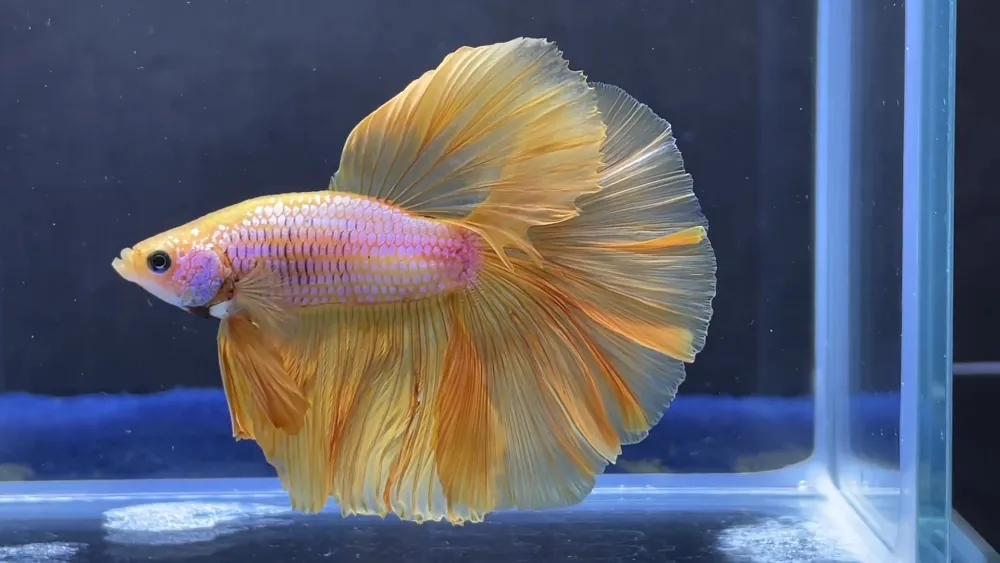
What is Distilled Water?
Distilled water is a type of purified water that has gone through a distillation process to remove impurities and minerals. The process involves boiling water to create steam, which is then collected and condensed back into water. This process removes contaminants such as minerals, bacteria, and other impurities, resulting in a pure form of water.
Distillation Process
The distillation process involves boiling water to create steam, which is then collected and condensed back into water. The steam is collected in a separate container and cooled down, causing it to revert to a liquid state. This liquid is then collected and considered distilled water. The process removes impurities such as minerals, bacteria, and other contaminants, resulting in a pure form of water.
Properties of Distilled Water
Distilled water is a pure form of water that has no minerals or impurities. This makes it an ideal choice for certain applications, such as laboratory experiments and medical procedures, where purity is essential. However, it is not recommended for long-term consumption as it lacks essential minerals that are necessary for good health.
One of the main characteristics of distilled water is that it has a neutral pH level. This means that it is neither acidic nor alkaline, making it ideal for certain applications where pH neutrality is required. Additionally, distilled water has a low conductivity, which means that it does not conduct electricity well. This property makes it an ideal choice for use in electronics and other applications where conductivity can cause damage.
In summary, distilled water is a pure form of water that has gone through a distillation process to remove impurities and minerals. While it is ideal for certain applications, it is not recommended for long-term consumption as it lacks essential minerals.
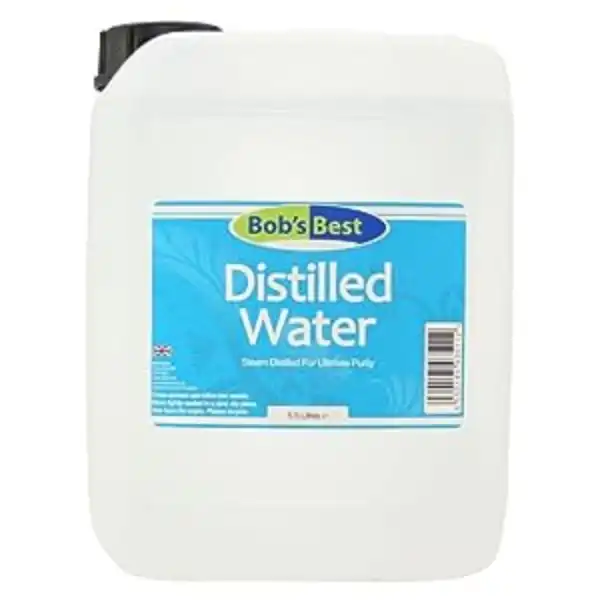
Read More: Do You Have to Condition Spring Water for Betta Fish?
Pros and Cons of Using Distilled Water for Betta Fish
Distilled water is a popular option for betta fish owners who want to ensure optimal water quality. However, there are both pros and cons to using distilled water for betta fish. Here are some of the main advantages and disadvantages:
Pros
- Controlled pH levels: By using distilled water, betta fish owners can have more control over the pH levels of the water their fish are swimming in. This can contribute to the overall health and well-being of the fish.
- Prevents algae growth: Using distilled water can also help prevent the growth of algae in the betta fish tank. This is because distilled water does not contain the nutrients that algae need to grow.
- No harmful chemicals: Unlike tap water, distilled water does not contain harmful chemicals such as chlorine and chloramines that can be harmful to betta fish. This means that betta fish owners do not need to use a water conditioner to remove these chemicals before adding water to the tank.
Cons
- Nutrient deficiencies: One of the main drawbacks of using distilled water for betta fish is that it can lack essential minerals and nutrients that the fish need to thrive. This can lead to nutrient deficiencies and health problems.
- Weakened immune system: Betta fish that are kept in distilled water for extended periods of time may have weakened immune systems. This can make them more susceptible to diseases and illnesses.
- Organ failure: In severe cases, using distilled water for betta fish can lead to organ failure. This is because the lack of minerals and nutrients in the water can cause the fish’s organs to malfunction.
Overall, while distilled water can be a useful tool for betta fish owners, it is important to use it in moderation and to supplement it with other sources of essential minerals and nutrients. Betta fish owners should also monitor their fish closely for any signs of nutrient deficiencies or health problems.

Related Post: Why Is My Betta Fish Twitching?
Alternatives to Distilled Water for Betta Fish
When it comes to providing the best environment for betta fish, choosing the right water is crucial. While distilled water is an option, there are other alternatives that may be more suitable.
Tap Water
Tap water is a common choice for betta fish owners. However, it’s important to note that tap water can contain chlorine and chloramines, which are harmful to fish. To make tap water safe for betta fish, a water conditioner should be used to remove these chemicals. Additionally, tap water may contain other contaminants such as heavy metals and pesticides, which can also be harmful to fish.
Bottled Water
Bottled water is another option for betta fish owners. However, it’s important to choose the right type of bottled water. Spring water is a good choice because it contains minerals and nutrients that are beneficial to fish. However, some bottled water may contain high levels of minerals that can be harmful to fish. It’s important to check the pH levels and mineral content of bottled water before using it in a betta fish tank.
Reverse Osmosis Water
Reverse osmosis (RO) water is another alternative to distilled water. RO water is purified water that has gone through a filtration process to remove impurities and minerals. This makes it a good choice for betta fish because it’s free of harmful chemicals and contaminants. However, RO water is also free of minerals and nutrients that are beneficial to fish. To make RO water suitable for betta fish, a mineral supplement should be added to the water.
In conclusion, there are several alternatives to distilled water that may be more suitable for betta fish. Tap water can be made safe with a water conditioner, while spring water and RO water are other options to consider. It’s important to choose the right type of water and to check the pH levels and mineral content before using it in a betta fish tank.
Related Post: What Fish can Live with Female Bettas?
Precautions When Using Distilled Water for Betta Fish
Distilled water is a popular choice for many aquarium owners, including those who keep betta fish. However, there are some precautions that should be taken when using distilled water.
Firstly, it is important to note that distilled water lacks minerals and nutrients that are essential for betta fish. This means that if distilled water is used exclusively, it can lead to deficiencies and health problems in the fish. Therefore, it is recommended to use a combination of distilled water and tap water, or to add mineral supplements to the distilled water.
Secondly, distilled water has a pH of 7, which is neutral. However, betta fish prefer slightly acidic water with a pH between 6.5 and 7.5. Therefore, it is important to test the pH of the water and adjust it accordingly before adding it to the aquarium.
Thirdly, distilled water can be contaminated during the bottling process or during storage. It is important to use distilled water from a reputable source and to store it properly in a clean, dry place.
Lastly, it is important to note that distilled water does not contain any beneficial bacteria that are necessary for the health of the aquarium. Therefore, it is recommended to use a bacterial supplement to ensure that the aquarium has a healthy bacterial population.
Watch This Related Video: Can You Use Distilled Water for Betta Fish?
Frequently Asked Questions [FAQs]
Why is Distilled Water Problematic?
Distilled water’s lack of minerals can lead to poor osmoregulation in bettas, causing stress and potential health issues. Minerals aid in electrolyte balance, which is vital for the fish’s overall functioning.
When Can Distilled Water Be Used?
Distilled water can be used for specific purposes like preparing betta medication baths or temporary water changes. Always mix it with suitable conditioned water to add essential minerals.
How Should I Prepare Water for My Betta?
Ideally, use a water conditioner to treat tap water and remove harmful chlorine and chloramines. This helps provide necessary minerals while ensuring water safety.
What’s the Best Water Source for Betta Fish?
The best water source for bettas is dechlorinated tap water or well-conditioned aquarium water. These sources contain the minerals necessary to support your betta’s health.
Are There Alternatives to Distilled Water?
Yes, alternatives include bottled spring water or reverse osmosis (RO) water. However, these should also be mineral-enriched or mixed with tap or aquarium water before use.
Related Posts:

